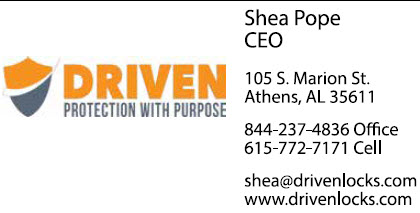Business Etiquette
 By: Wanda Campbell
By: Wanda Campbell
Today I want to talk with you about business etiquette and business ethics. You are probably sitting there thinking this is going to be so boring. But this subject is not about “Please” and “Thank you.” It is not as easy as it seem.
As adults, you will spend more than half of your life at the office. Business etiquette is all about making those hours as pleasant and productive as possible. Ethics is about the process of learning what is right or wrong then doing the right thing.
All business is people business – no matter where you work, you will be involved with people. In the people business, everyone is your customer. Sometimes you are selling something to your customer, and sometimes you are selling yourself to a boss, co-worker, or client.

Good salesmanship is empathetic. Empathy means you can identify the feelings, thoughts, and attitudes of others. If I am watching television or reading a book and really getting into it, the character throws a punch and I stand up and throw a punch too, that’s empathy.
This is not to be confused with sympathy. Sympathy is agreeing with the feelings of others. When someone gets hurt and we feel sorry about it, that is sympathy.
Let’s start with the basics – “Please” and “Thank you” are important. Remember to use them in your everyday meetings and encounters. A sincere smile, a sincere handshake, and a kind word all provide important introductions and reminders of encounters.
Schmoozing (to chat idly) a little is the first step to building rapport. And listening is the secret to successful schmoozing. These basics tell others you are interested in them and value them. A little small talk can give you increased visibility in the workplace and this is how it starts.
Let’s start with your boss. Common courtesy means that you treat everyone with an equal measure of politeness. This applies to your boss as well. The difference is no surprises. Your boss needs to know what you’re doing. He/she needs to know as soon as possible about problems, conflicts, or opportunities related to what you are doing. Avoid interrupting, always ask, “Is this a good time?”
When dealing with co-workers, treat others as being valuable even when you don’t need them. Always greet everyone and be the good host. Remember the “Golden Rule,” and treat others as you would be treated.
Good business etiquette makes meetings more productive and allows people to disagree without being disagreeable. With proper etiquette, you can be as effective as speaking face-to-face in phone calls and emails.
All business is people business, and good business etiquette is a strategy for making good in the people business. In the short run, ethics and business are often incompatible. But business is conducted with the long run in mind and good business means good ethics.
By: Wanda Campbell
Center for Lifelong Learning – 121 South Marion Street, Athens, AL 35611 – 256-233-8262

